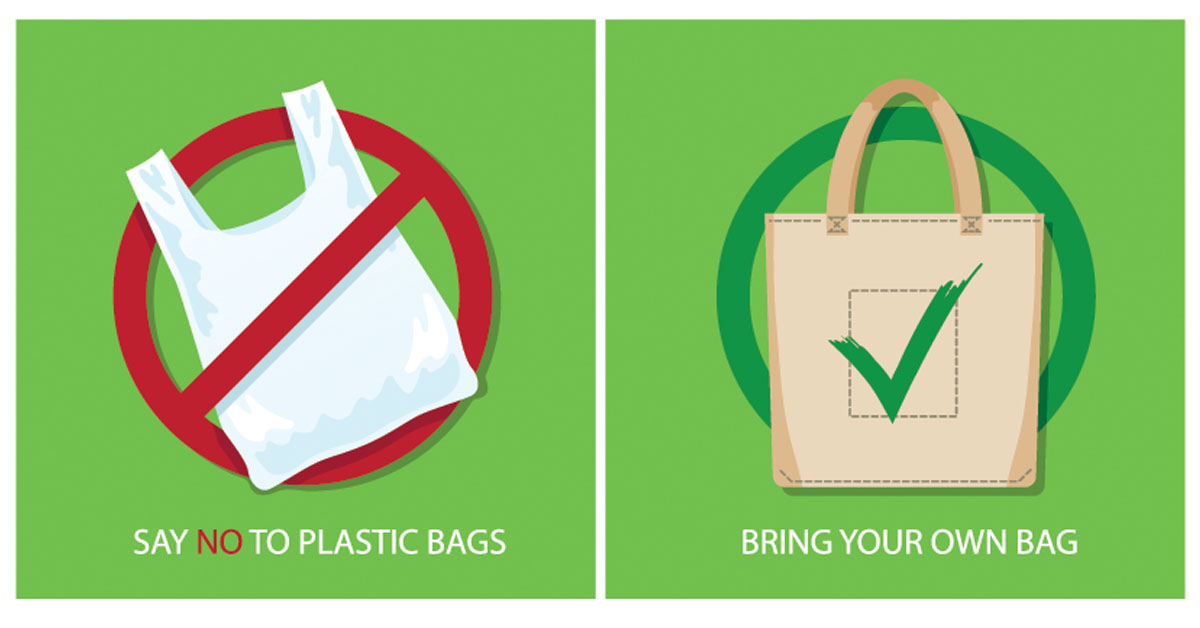Starting from mid-2023, consumers will have to pay at least five cents for every disposable bag that they take from most supermarkets, the Ministry of Sustainability and the Environment Grace Fu announced on Monday (7 Mar).
That’s right, take a deep breath, the change is not happening immediately, but it will come into effect next year.
You still have time to find nice-looking reusable bags before the change takes hold.
Reducing Plastic Usage
During the debate over the ministry’s budget, Ms Fu stated that charging customers for every bag is “equitable and effective”, since consumers have to pay for more they take.
By imposing a price on the first bag taken, it will also incentivise shoppers to bring their own reusable bags instead.
Ms Fu adds that the disposable bag charge isn’t to put a ban on disposable bags, but just a policy to motivate consumers to be more prudent with their use of disposables.
Moreover, the charge will only apply to supermarket chains that have an annual turnover of more than $100 million.
Which means that the policy will definitely affect shoppers at bigger supermarket outlets like FairPrice, Sheng Siong, Dairy Farm, and Prime.
Therefore, it won’t be necessary for online retailers and convenience stores to implement this mandatory surcharge for disposable bags of all materials, although they are free to do so.
Before the Ministry of Sustainability and the Environment announced the disposable bag charge, there have been retailers that have already implemented the surcharge on their own accord, like H&M, Pet Lovers Centre, Dondon Doki, and The Body Shop for instance.
Proceeds Should Go Towards Charitable Causes
The new minimum charge on disposable plastic bags was finally settled after one-and-a-half years of extensive consultation with the industry and the public.
Five cent coins finally see their use as well, yay.
The funds gathered from the surcharge will be kept by the supermarkets, but Ms Fu asserts that information concerning the number of bags issued and proceeds received must be publicised to ensure accountability.
The Minister also encourages supermarkets to donate the proceeds to environmental or social causes, or perhaps even channel them towards initiatives that help uplift lower income families.
Acting as a spearhead, Ms Fu brings up how the NTUC FairPrice Union has been taking the proceeds earned from charging 20 cents for extra plastic bags since Nov 2019 and giving it back to green programmes like the National Park Board’s OneMillionTrees project.
Join our Telegram channel for more entertaining and informative articles at https://t.me/goodyfeedsg or download the Goody Feed app here: https://goodyfeed.com/app/
Long Awaited Change
For many environmental groups in Singapore, they have been calling for a plastic bag charge policy recommendation as early as 2016.
Ms Tan Huileng, Associate Director of Zero Waste SG hopes that the disposable surcharge can extend beyond larger supermarkets to online grocery shopping and smaller retailers.
The founder of Plastic-Lite Singapore, Ms Aarti Giri, echoes her support for the disposable bag policy.
She said, “Charging for disposable carriers is a much awaited and much needed policy, and Singapore would finally be joining the bandwagon of countries that have done so in the past few years successfully, with encouraging results.”
In addition, Ms Aarti feels that the transparency surrounding the disposable bag proceeds is “reassuring”, and sincerely hopes that it will be “channelled back into efforts to protect nature, biodiversity, national and global environmental goals as well as other charitable and social causes”.
The ultimate goal of the policy is to inculcate an environmental consciousness and good habits within Singaporeans, such that consumers will proactively bring their own bags around like it’s a necessity in their carry-ons.
The Ministry of Sustainability and the Environment also believes that the disposable bag surcharge will be taken well by Singaporeans, since one of the key surveys conducted by the National Environmental Agency showed that Singaporeans were fine with a plastic bag charge.
In September 2021, a survey with 1,000 respondents showed that 80% agreed that excessive usage of plastic bags was harmful to the environment, and close to 90% agreed that they had a role to play in reducing the use of disposable bags.
Better yet, more than 70% concurred that a mandatory charge would be effective in reducing the distribution and usage of such bags.
At the very least, this policy will definitely be more effective in reducing plastic usage compared to replacing plastic straws.
Read Also:
- There Will be No More Mid-Year Exams for All Primary & Secondary School Students from 2023
- Prepare for Even Higher Petrol Price As US & Europe Decide on a Russian Oil Import Ban
- Top 10 Degrees in S’pore With the Highest Starting Pay Based on Survey & It’s Not Business or Law
- Lawrence Wong Responds to Memes of Him Showing ‘Middle Finger’ When He Was Counting in Parliament
Featured Image: Shutterstock / Evgenia.B
